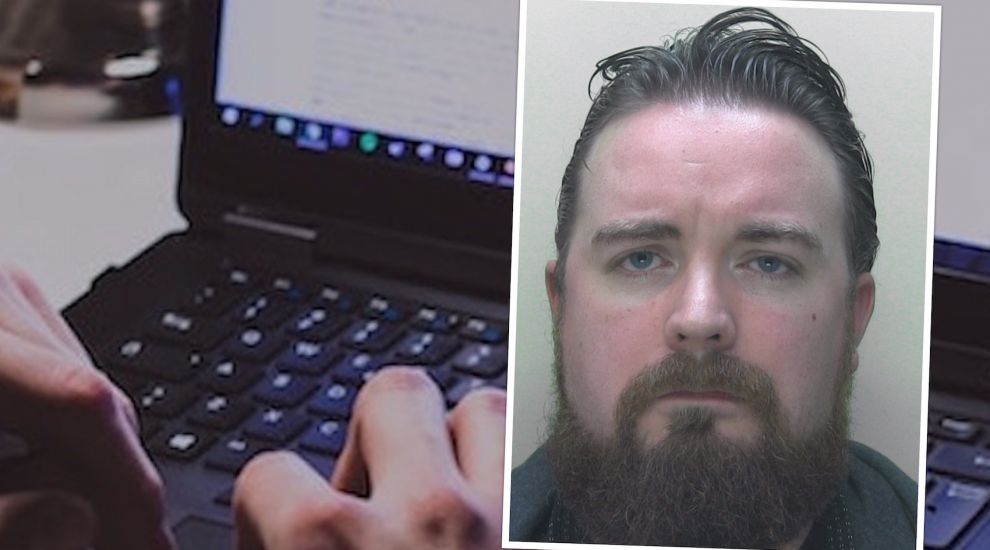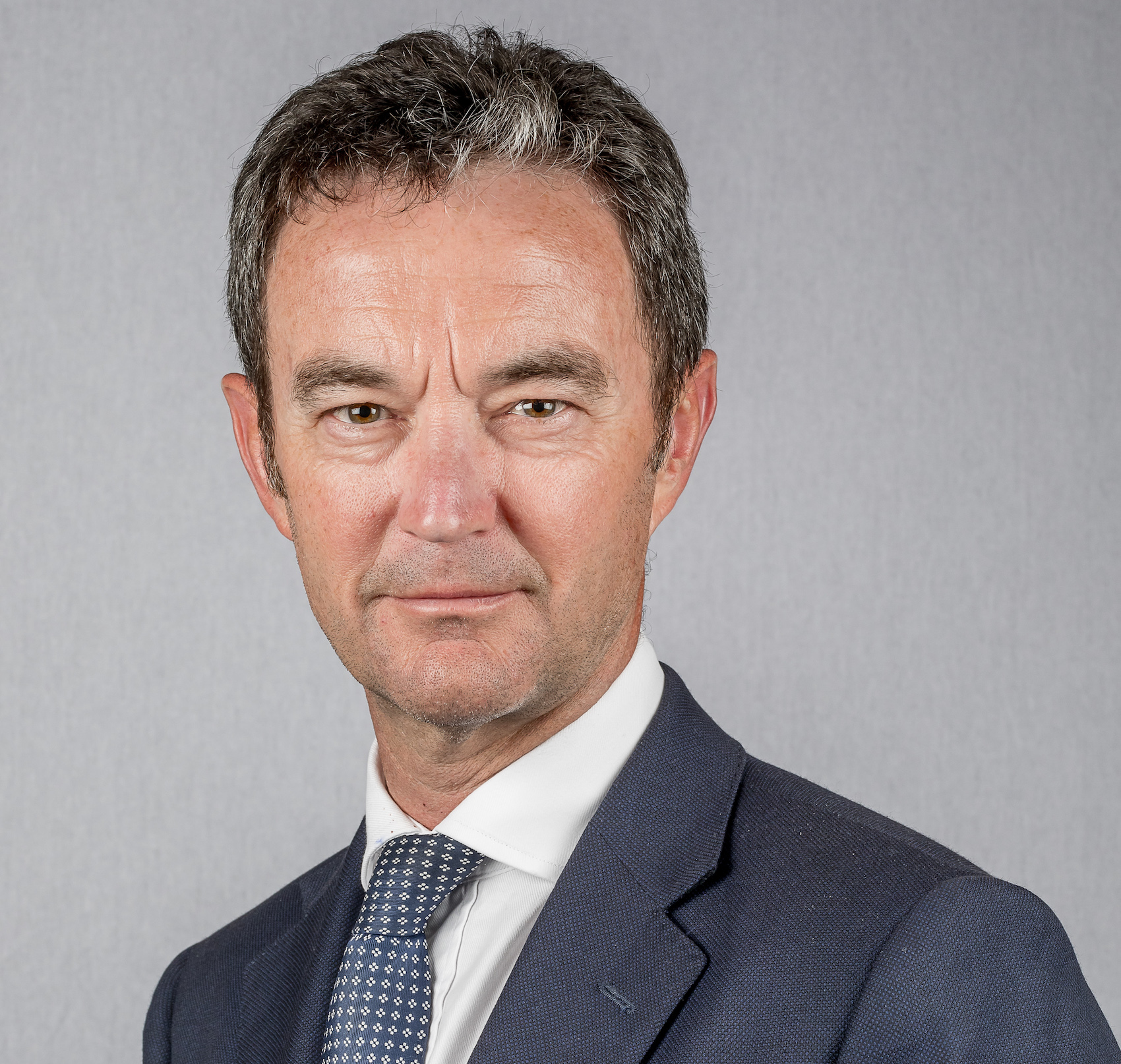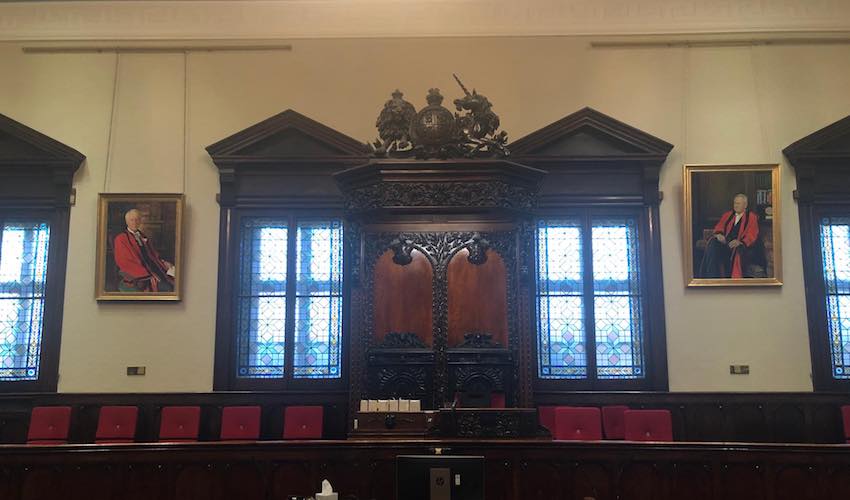

A 34-year-old has been jailed after officers found nearly 300 indecent images of children on his devices and evidence he’d searched for material produced by a Ukrainian paedophile ring that used a modelling agency as a front.
Daniel Rory Stephen Heaney, who claimed he had been targeted by hackers, was found guilty of five counts of making indecent images and movies of children after a trial by the Inferior Number in October.
The Court heard he had made a total of 268 indecent images, with seven being in the most serious category.
Summing up the facts for the prosecution, the Solicitor General, Matthew Jowitt said the Police had been contacted by a UK police force about an email linked to Heaney which had been identified during an investigation involving indecent images of children.

Pictured: The Solicitor General, Matthew Jowitt.
Police officers seized five devices from his home after his arrest, two laptops, two mobile phones and an external hard-drive. Heaney provided a list of possible passwords, one of which allowed access to the email address the UK police force had identified.
While no images were found on this account, the Court heard that Heaney was in contact with other individuals who were looking to trade images of children.
The High-Tech Crimes Unit officers examined the devices and found a total of 268 indecent images across them.
Analysis of Heaney’s internet activity across the devices also showed evidence of search terms commonly associated with indecent images of children between 2014 and 2017.
This included terms relating to material produced by a Ukrainian paedophile ring which used a modelling agency as a front.

Pictured: Officers found evidence of search terms commonly associated with indecent images of children on Heaney's devices.
On one of the mobile phones, the officers also found evidence of conversations relating to the distribution of indecent images of children on an online application.
Heaney, who denied any sexual interest in children and denied viewing, possessing or distributing indecent images of children during his interview, said he had been hacked. The Solicitor General however said that a computer forensics expert - who had previously spent ten years working in this area for the Ministry of Defence – and an expert on phone analysis, said there was no evidence of hacking.
“The skill set required to remotely compromise multiple computers and mobile devices without trace, bypass antiviral software, circumvent firewalls, falsify system log files, regularly take control of the computer’s graphical interface, maintain remote access for a five-year period and remove all evidence of compromise would require a significant level of expertise, time and expense,” the computer forensics expert said in his report.
“Such levels of sophistication are far beyond the abilities of a typical hacker and at a level I would only expect to see in state sponsored hacking teams working for geopolitical or intelligence reasons.”

Pictured: Advocate Francesca Pinel was representing Heaney.
Heaney maintained his innocence during the trial he was entirely unaware of the existence of any of the indecent material found on his devices and denied searching for such material.
Defending, Advocate Francesca Pinel, suggested the three-year sentence sought by the court could be reduced.
She noted this was Heaney’s first conviction and that he was of “previous good character."
She told the court he had a strong work record as well as a “large supportive network of family and friends” who had written numerous references speaking of him as “loyal, trustworthy, kind-hearted, fun, caring and very much loved."
The lawyer said that, while Heaney was concerned about the impact of the case on his future, he had vowed to make valuable use of his time in prison.

Pictured: The Court slightly reduced the sentence sought by the Crown.
Returning the Court’s sentence, Royal Court Commissioner Julian Clyde-Smith, who was sitting with Jurats Charles Blampied and Jerry Marsden, noted that Heaney “remains fixed in the position he didn’t commit the offences and that his devices were hacked by others."
He also noted the “very good letters” Heaney’s family and friends had written on his behalf.
The Commissioner said that while Heaney couldn’t get credit for a guilty plea as he had caused a trial and still maintained his innocence, his sentence could be reduced to reflect his good character and his cooperation with the police.
He therefore sentenced Heaney to two-and-a-half years in prison and ordered the destruction of the devices.
As recommended by the Crown, Heaney will be subject to restraining orders for the next seven years. He will also have to wait seven years before he can apply for his name to be removed from the Sex Offenders’ Register.
Comments
Comments on this story express the views of the commentator only, not Bailiwick Publishing. We are unable to guarantee the accuracy of any of those comments.